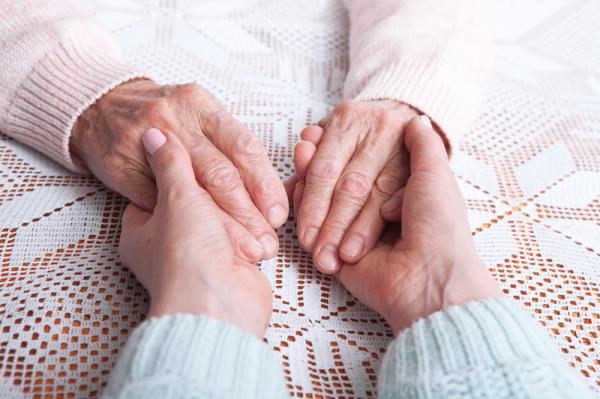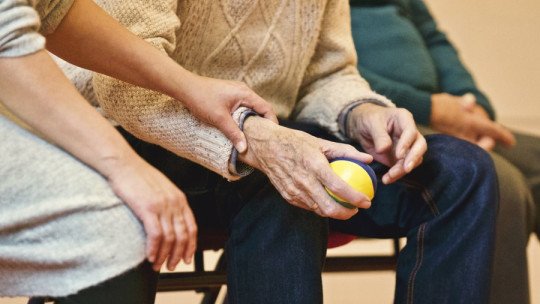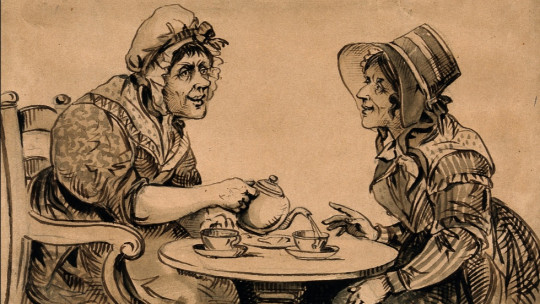Sometimes people mention different terms that they have heard on television shows or movies without knowing exactly what they are referring to. This is usually quite common in highly vulnerable sectors that have few resources to deal with the social problems that develop in daily life. There are branches of psychology that have been interested in providing precise and concrete information on various topics that arouse people’s interest.
Likewise, in some places campaigns are carried out that offer the possibility of knowing how to help those who are going through difficult times due to various pathologies. In this PsychologyFor article we explain What is psychoeducation in mental health and what is it for?
What is psychoeducation in psychology
When we talk about psychoeducation in psychology we are referring to a community device which has the objective of sharing information about certain clinical conditions. In general terms, psychoeducation seeks to educate and inform about diseases that alter psychological functioning in people who suffer from pathologies of considerable severity.
Therefore, the functions and objectives of psychoeducation are:
- Provide emotional support to the closest environment of the person with a mental disorder.
- Share pertinent information about the causes and consequences of psychiatric pathologies.
- Build strategies that allow you to cope in a more enjoyable way with the difficulties of each mental disorder.
Despite the scope of psychoeducation, it should be noted that people who present serious symptoms must be treated by mental health professionals.
What is psychoeducation for?
Another of the fundamental aspects to understand psychoeducation lies in knowing the purpose of this discipline. The purposes of psychoeducation point to the anticipation of possible consequences produced by some clinical condition.
For this reason, it is sought raise awareness among both the population and their families of the affected person about the characteristics of a specific pathology. In this way, it will be possible to develop more effective intervention plans in the face of complex situations that may arise.

Psychoeducation techniques
This area has some methodologies that can be applied to communities and/or limited populations. Likewise, the variety of approaches provides the possibility of testing tools that may work in certain specific cases. Next, we will talk about psychoeducation techniques in mental health:
Identification of serious behaviors
This technique consists of explain what serious behavior is that can endanger the lives of third parties or one’s own person. This is also linked to the analysis of aggressive behaviors that are repeated more frequently.
Inoculation to failure
Since there are situations in life that can be unfavorable, inoculation to failure prepares people for negative interactions in case they happen. This psychoeducation technique is also aimed at preventing relapses into actions and behaviors that are harmful to the person.
role play
This technique lies in the fact of reproducing in a didactic way the bond between a close person and someone who is suffering from a mental pathology. In other words, a fragment of real life is staged in a fictitious way. Broadly, a psychologist looks at dynamics to explain what real interaction may be like.
Imagined exhibition
In a controlled environment, the person is asked to imagine a moment that arouses fear, anger and/or anxiety. After a while, emotions can give way to the stimulus that appears mentally. The objective of this technique is for the person to be able to carry out this process in their daily life and avoid unfavorable consequences.
Information provision
Finally, the provision of information includes the diffusion of the qualities of pathologies serious to various populations. At the same time, patients are provided with intervention strategies in times of crisis.
In the following article you will find what personal crises are, types and how to overcome them.
For what types of psychological problems is psychoeducation used?
Beyond the fact that each person presents different symptoms depending on the severity of each case, it is necessary to know that psychoeducation is used for certain psychological problems that we show you below:
- Generalized anxiety disorder.
- Post-traumatic stress disorder.
- Major depressive disorder.
- Agoraphobia.
- Social and specific phobia.
- Obsessive compulsive disorder.
- Eating disorders.
- Addictions.
- Suicide attempts.

Advantages of psychoeducation
Finally, in this section we show you the advantages that psychoeducation presents in relation to the effects it has on the people who receive the information:
- Improves the patient’s relationship with their environment: When you understand a person’s mental functioning, the relationship may be more fruitful, since you have information to intervene in complex moments.
- Increased self-esteem: The mood and self-esteem of the patient and those close to them will improve by obtaining greater self-knowledge. In this way, unpleasant situations will also be avoided.
- Development of personal capabilities: Psychoeducation provides the patient with tools to develop different skills, personal tastes and activities of interest.
This article is merely informative, at PsychologyFor we do not have the power to make a diagnosis or recommend a treatment. We invite you to go to a psychologist to treat your particular case.
If you want to read more articles similar to What is psychoeducation in mental health and what is it for? we recommend that you enter our Social Psychology category.
Bibliography
- Bulacio, JM, Vieyra, MC, Álvarez Daneri, C., Benatuil, D. (2004). The use of psychoeducation as a therapeutic strategy. XI Research Conference. Faculty of Psychology, University of Buenos Aires.
- Tena-Hernández, FJ (2020). Psychoeducation and mental health. SANUM Magazine, 4 (3), 36-45.








